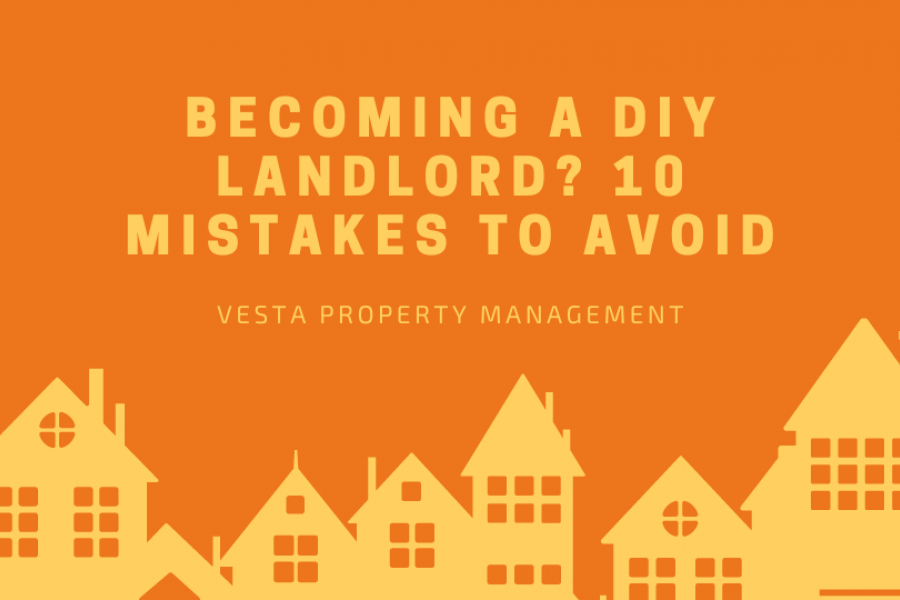
Are you thinking about becoming a DIY landlord but worried about the potential challenges? As a landlord, you have the opportunity to maximize your rental income, maintain better control over your property, and build strong relationships with your tenants.
However, starting this role without adequate preparation can lead to costly mistakes and headaches. From tenant selection to maintenance issues, there are several common errors that may be challenging to you as a landlord.
In this guide, we'll explore the key mistakes to avoid, helping you navigate the complexities of property management with confidence and ease. Let's make your journey as a DIY landlord smooth and successful!
10 Mistakes to Avoid
Poor Tenant Screening
A good tenant screening process involves a thorough background check, verifying income, checking references and evaluating credit history.
Without this due diligence, you risk renting to individuals who may not pay rent on time, respect the property, or comply with lease terms.
By investing time in a comprehensive screening process, you increase the likelihood of finding responsible tenants who will care for your property and meet their financial obligations.
Neglecting Lease Agreements
A lease agreement is a legal document that outlines the responsibilities and expectations of both the landlord and tenant. Without a clear, written agreement, you may encounter disputes over rent payments, maintenance responsibilities, and lease duration.
.jpg)
A well-drafted lease should cover key aspects such as rent amount, payment due dates, security deposit terms, property maintenance obligations, and rules for property use.
This clarity helps prevent conflicts and provides legal protection in case issues arise and helps you foster a positive landlord-tenant relationship.
Overlooking Maintenance
Being a landlord, it is crucial for you to maintain your rental property on a regular basis. Tenants are more likely to stay long-term and take care of the property if they see that you are proactive about maintenance.
Regular property inspections and timely repairs demonstrate your commitment to providing a safe and comfortable living environment. Additionally, well-maintained properties tend to attract higher-quality tenants and can command better rental rates.
Underestimating Costs
Many new landlords make the mistake of underestimating the true costs of property management. Besides mortgage, there are also property taxes, insurance, maintenance, repairs, and potential legal fees that you will have to manage.
Without a robust budget and reserve fund, you might find yourself financially strained. So, proper financial planning is crucial to maintaining the profitability and stability of your rental business.
Ignoring Landlord-Tenant Laws
Complying with the local, state, and federal landlord-tenant laws is one of the most crucial parts of property management. These laws govern various aspects of the rental process, including security deposit handling, eviction procedures, and tenant rights.

It’s essential to familiarize yourself with the regulations in your area and ensure your practices align with legal requirements. This includes proper lease documentation, adhering to fair housing laws, and understanding your obligations for property maintenance and safety.
Keeping up with legal changes and seeking legal advice when needed can help you avoid costly legal battles.
Setting Incorrect Rent Prices
Setting the right rent price is a delicate balance. Pricing your property too high can lead to prolonged vacancies and pricing it too low can reduce your rental income.
Conducting a thorough market analysis to understand the rental rates for similar properties in your area is crucial. Consider factors such as property condition, amenities, location, and current demand when setting your rent.
Regularly reviewing and adjusting your rent based on market trends can help ensure you remain competitive and maximize your rental income while minimizing vacancy periods.
Poor Communication
Effective communication with tenants is vital for a smooth landlord-tenant relationship. Tenants need clear and timely information about rent payments, maintenance schedules, and property rules.
You should establish open lines of communication, whether through phone, email, or a property management app, helps build trust and ensures issues are addressed promptly.
Regular check-ins and clear communication channels can prevent small problems from escalating into major conflicts, fostering a positive living experience for your tenants.
Not Conducting Regular Inspections
Skipping routine property inspections is a mistake that can lead to unnoticed and escalating issues. Regular inspections allow you to identify and address maintenance needs before they become significant problems.
.jpg)
Additionally, they provide an opportunity to ensure tenants are adhering to lease terms and taking care of the property.
Neglecting these inspections can result in costly repairs, property damage, and decreased property value. Schedule periodic inspections and inform tenants in advance to ensure transparency and cooperation.
Inadequate Record Keeping
Poor organization of financial records, lease agreements, and tenant communications can lead to administrative chaos and potential legal issues.
Keeping detailed and organized records is essential for tracking income, expenses, maintenance requests, and lease renewals. Inadequate record-keeping can result in missed payments, forgotten maintenance tasks, and difficulties during tax season.
Utilizing property management software or developing a systematic approach to record-keeping can streamline your operations. Proper documentation also serves as evidence in case of disputes, providing a clear history of interactions and transactions with tenants.
Failing to Screen Vendors and Contractors
Hiring unqualified or unreliable vendors for property repairs and maintenance can result in subpar work and higher costs.
Not thoroughly vetting contractors can lead to incomplete or poor-quality repairs, causing tenant dissatisfaction and potentially increasing your liability.
It’s crucial to screen vendors by checking references, verifying licenses and insurance, and reviewing past work. Establishing a network of trusted and competent professionals ensures that maintenance and repair.
Bottom Line
Navigating the challenges of being a DIY landlord can be challenging, but avoiding these common mistakes is crucial for success. If managing everything yourself feels overwhelming, Vesta Property Management is here to help.
With expertise in tenant screening, maintenance, and legal compliance, Vesta Property Management can handle the complexities of property management, allowing you to enjoy the benefits of your investment without the stress.
Trust Vesta Property Management to keep your rental business running smoothly and efficiently!